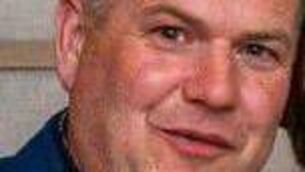Jack Lynch: A glimpse into the life of the first Cork-born Taoiseach

September 1977: Jack Lynch pictured with Margaret Thatcher. (Photo by Rolls Press/Popperfoto/Getty Images)
IF the programme for government is approved, Fianna Fáil leader Micheál Martin looks set to become the next Taoiseach, the first Cork person to hold the title since Jack Lynch left the office in 1979.
Mr Lynch was a longstanding friend of Mr Martin’s late father.
Writing in in 2017, Mr Martin said it was Jack Lynch who inspired him to pursue a career in politics.
Mr Martin described Jack Lynch as one of Cork’s "greatest sons" and a man of "modesty, intelligence and decency".

Born near Shandon on August 15, 1917, Lynch was the first in his family to receive a secondary education.
He won a secondary school scholarship, attending the North Monastery and on finishing there took a job in the civil service.
Lynch went on to pursue a legal career, studying law by night at University College Cork and finished his studies at King's Inns in Dublin where he qualified as a B.L.

He was called to the Bar at the Trinity Term in 1945.
Mr Lynch was also a GAA legend, who won six All Ireland medals in a row, five of them for hurling.
He also held three National League, six Munster Championships and eight Railway Cup medals.
In Mr Martin’s writing about Lynch’s life and legacy he states that the former Taoiseach had never planned on entering politics.

"He never planned to go into politics, but was persuaded by the Fianna Fáil organisation, and colleagues in Glen Rovers, to run for the Dáil," he said.
Lynch was appointed secretary to the Fianna Fáil party and later Parliamentary Secretary when the party returned to office in 1951.
He assumed positions such as Minister for Education, Minister for Industry and Commerce and Finance Minister before finally becoming Taoiseach in 1966.

"As Minister for Education he was the one who ended the marriage ban in primary and vocational schools – something he did without consulting the hierarchy.

"In Industry and Commerce he negotiated a free trade deal with the UK and implemented the wider policy of growth through trade.
"In Finance he ensured that the government’s priorities were funded," Mr Martin stated.

Lynch served as Taoiseach from 1966-1973 and again in 1977-1979, during one of the most turbulent times in Irish history, which included the start of the Troubles in Northern Ireland.
Lynch was also central in leading Ireland into the European Economic Community in 1973.

front page from December 05, 1979, when Lynch announced his resignation both as leader of the government and Fianna Fáil highlights that, whilst Lynch faced many obstacles during his time as leader of the government, he always maintained unwavering resilience.

"Mr Lynch’s quality for survival proved an invaluable asset during his career and although it looked as if he might teeter from the brink during the arms crisis, he emerged from that period stronger than ever.
"He gained the admiration of other leaders for the firmness and resolute way he handled that debacle."

In a statement announcing his decision Lynch said:
"It is obvious to me that the time has come for someone with a new approach and fresh thinking should take over the leadership of the government, a leader who will carry on the traditions established by the founder and successive leaders of Fianna Fáil, a leader who will, with a new vigour, to continue to strive for the further economic progress of our country, and a leader who will continue to encourage the coming together of all people and traditions on this island, without confrontation or violence, but in peace, with mutual respect and understanding."







 App?
App?


